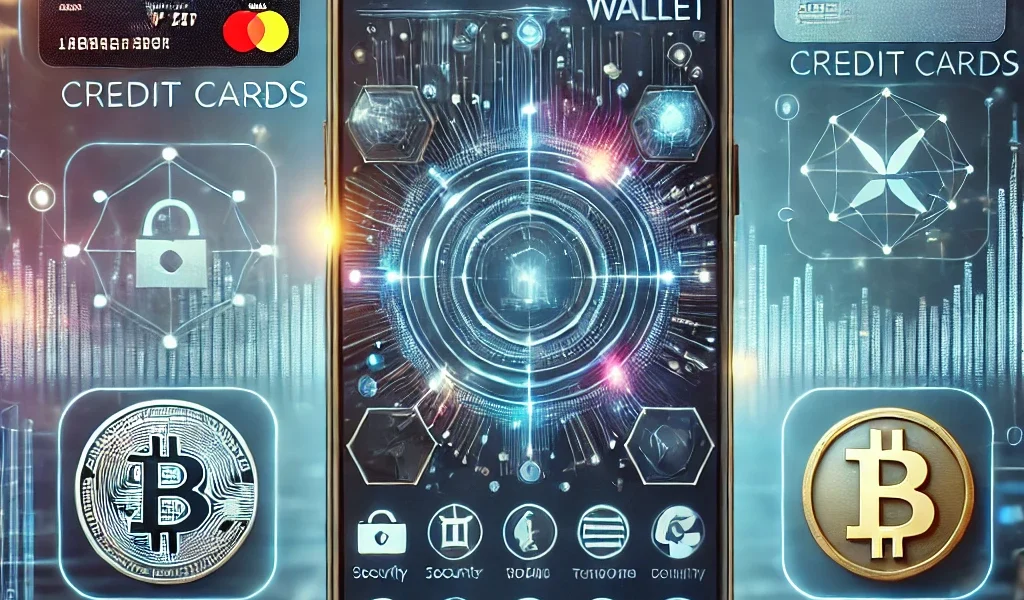Digital wallets have revolutionized the way people manage and transfer money. In 2025, digital payments are faster, safer, and more convenient than ever. With so many options available, choosing the right digital wallet can be overwhelming. This guide will compare the top digital wallets, highlighting their features, benefits, and drawbacks to help you make an informed choice.
What is a Digital Wallet?
A digital wallet is an electronic application that allows users to store payment methods like credit/debit cards, cryptocurrencies, and even loyalty cards securely. It enables seamless transactions online and in stores using smartphones, smartwatches, or computers.
Key Features to Look for in a Digital Wallet
When selecting a digital wallet, consider the following factors:
- Security: End-to-end encryption, biometric authentication, and fraud protection.
- Ease of Use: User-friendly interface and compatibility with devices.
- Payment Options: Support for credit/debit cards, bank transfers, and cryptocurrencies.
- Integration: Works with e-commerce platforms, stores, and service providers.
- Transaction Fees: Competitive or zero transaction fees for payments and transfers.
- Customer Support: Reliable assistance for technical issues or disputes.
Top Digital Wallets in 2025
1. PayPal
Features:
- Secure online payments and peer-to-peer transfers.
- Buyer protection and fraud prevention.
- Supports multiple currencies and international transactions.
- Business account options with invoicing tools.
Pros:
- Widely accepted worldwide.
- Strong security and encryption.
- No fees for domestic personal transactions.
Cons:
- High transaction fees for business and international transfers.
- Account holds and limitations can occur.
2. Apple Pay
Features:
- Contactless payments using Apple devices.
- Tokenized transactions for enhanced security.
- Works with Apple Card and Apple Cash.
- In-app and web payment support.
Pros:
- Highly secure with Face ID and Touch ID.
- Seamless integration with Apple ecosystem.
- No additional fees for transactions.
Cons:
- Limited to Apple devices.
- Not universally accepted by all merchants.
3. Google Pay
Features:
- Contactless payments via Android and iOS devices.
- Peer-to-peer money transfers.
- Integrates with Google services like Gmail and Google Store.
- Loyalty cards and transit tickets storage.
Pros:
- No fees for personal transactions.
- Supports both online and offline payments.
- Strong encryption and fraud protection.
Cons:
- Some banks and merchants do not support it.
- Limited rewards and cashback offers.
4. Samsung Wallet
Features:
- Compatible with Samsung devices for contactless payments.
- Supports digital keys, IDs, and boarding passes.
- Tokenized transactions for improved security.
- Works with debit/credit cards and PayPal.
Pros:
- Secure payments with Samsung Knox.
- Supports MST (Magnetic Secure Transmission) for wider merchant acceptance.
- No transaction fees for standard payments.
Cons:
- Limited to Samsung devices.
- Fewer integrations compared to Apple Pay and Google Pay.
5. Venmo
Features:
- Social payment platform for peer-to-peer transfers.
- Option to share transactions with friends.
- Supports direct deposit and cryptocurrency purchases.
- Venmo debit card for in-store payments.
Pros:
- Easy to split bills and make group payments.
- Free transfers to linked bank accounts.
- Fun social-sharing feature.
Cons:
- Public transaction history unless manually set to private.
- 3% fee on credit card transactions.
6. Cash App
Features:
- Peer-to-peer payments and direct deposits.
- Bitcoin trading and investment options.
- Cash Card for ATM withdrawals and in-store purchases.
- Customizable debit card with rewards.
Pros:
- No fees for personal transactions.
- Allows stock and cryptocurrency investments.
- Instant transfers to bank accounts (for a fee).
Cons:
- Limited international use.
- Higher fees for instant transfers.
7. Skrill
Features:
- Supports online payments, remittances, and cryptocurrency trading.
- Multi-currency digital wallet.
- Prepaid Skrill Mastercard for withdrawals and shopping.
Pros:
- Competitive fees for international transfers.
- Secure transactions with two-factor authentication.
- Cryptocurrency support.
Cons:
- High withdrawal fees.
- Limited merchant acceptance compared to PayPal.
Which Digital Wallet Should You Choose?
- For frequent online shopping: PayPal or Google Pay offer broad acceptance.
- For Apple users: Apple Pay provides seamless integration with iOS devices.
- For Android users: Google Pay or Samsung Wallet are excellent choices.
- For peer-to-peer transfers: Venmo and Cash App offer social and investment features.
- For international transfers: Skrill and PayPal support multiple currencies.
Conclusion
The best digital wallet depends on your needs, device compatibility, and transaction preferences. Whether you need a wallet for online shopping, peer-to-peer transfers, or investments, there’s an option tailored for you. Always prioritize security, ease of use, and transaction fees when making your decision.
Disclaimer: This article is for informational purposes only and does not constitute financial advice. Please conduct your own research and consult a financial expert before choosing a digital wallet.



